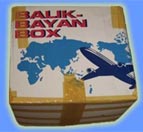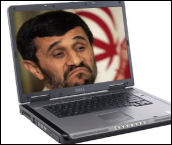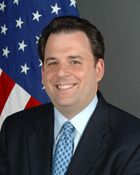 John Dennis Tang Ong, a Philippine-born Canadian citizen residing in British Columbia, pleaded guilty in federal court last Thursday to charges that he and an accomplice in the Philippines had conspired to export M-4 rifle parts from the United States to the Philippines without a license. According to the indictment, Ong’s accomplice, Ronnell Rivera, a resident of the Philippines, had been communicating with a federal undercover agent in an attempt to purchase the rifle parts from the agent. The plan was that the agent would ship the parts to an address in the United States and that Ong would then arrange for the shipment from the United States to the Philippines. Ong paid for the rifle parts by wiring the purchase price from a bank in the state of Washington to one in Atlanta, Georgia.
John Dennis Tang Ong, a Philippine-born Canadian citizen residing in British Columbia, pleaded guilty in federal court last Thursday to charges that he and an accomplice in the Philippines had conspired to export M-4 rifle parts from the United States to the Philippines without a license. According to the indictment, Ong’s accomplice, Ronnell Rivera, a resident of the Philippines, had been communicating with a federal undercover agent in an attempt to purchase the rifle parts from the agent. The plan was that the agent would ship the parts to an address in the United States and that Ong would then arrange for the shipment from the United States to the Philippines. Ong paid for the rifle parts by wiring the purchase price from a bank in the state of Washington to one in Atlanta, Georgia.
At Rivera’s request, Ong sent him an email that provided an address in the state of Washington to which the undercover agent could ship the parts. When the agent was reluctant to ship the parts to that address, Ong suggested, in another email, that the items should be sent by “balikbayan box.”
Although the indictment states, rather comically, that “balikbayan box” is a “freight forwarding company” it is, instead, as the name might suggest, a type of box. The box in question is a corrugated cardboard box of particular dimensions used by expatriate Philippines to send a number of small gifts packed together back to their family in the Philippines. Typically, the boxes are given to freight forwarding companies that specialize in putting these boxes on container ships for cheap, if slow, shipment to the Philippines and then delivering them to the addressees once they arrive. Ong allegedly also noted to Rivera that balikbayan box shippers rarely asked for identification from the shipper.
Ong and Rivera agreed on this plan, so Ong sent an email to Rivera with the address of a balikbayan box shipping company in Atlanta, Georgia, along with the specific dimensions and packing instructions for such a shipment. Rivera then forwarded this information to the undercover agent. Nine months later, Ong was arrested when he arrived in Hawaii for a vacation.
Although the indictment states that Ong traveled to the United States from time to time to arrange for exports from the United States to the Philippines, there are no allegations in the indictment that any of the activities at issue in the indictment occurred in the United States. It seems that instead all activities relating to this export by Ong occurred while he was in British Columbia. There seems a good chance that Canada would not have recognized that the U.S. had jurisdiction over Ong or permitted his extradition. In retrospect, Ong probably regrets his choice of Hawaii as a vacation spot.
After Ong’s guilty plea, Ong and the government stipulated to a judicial order of his removal to Canada, which means that his only incarceration will likely be time already served. His co-defendant Rivera is, as they say, still at large. He’s probably not thinking about a vacation in the United States. Ever.


 Posted by
Posted by  Category:
Category: 

 I think all the publicity of the new part of the I-129 non-immigrant visa application which asks companies to certify as to whether the company will be transferring export-controlled technology to the foreign employee is causing some confusion. I saw today a
I think all the publicity of the new part of the I-129 non-immigrant visa application which asks companies to certify as to whether the company will be transferring export-controlled technology to the foreign employee is causing some confusion. I saw today a  John Dennis Tang Ong, a Philippine-born Canadian citizen residing in British Columbia,
John Dennis Tang Ong, a Philippine-born Canadian citizen residing in British Columbia,  New-York based electronics wholesaler
New-York based electronics wholesaler 


